Urban Ecology:
Exploring Grassroots Resilience
Sense Gallery (Beijing) & Tongji University (Shanghai)
China, 2023
Workshop and research residency on citizen-led sensing practices and urban greening.
As an invited research fellow at the College of Design and Innovation at Tongji University, Timothy Nouzak facilitated a series of research sharings and workshops. The project explored how urban resilience is not just planned from above, but formed through the collective, embodied actions of citizens transforming their local environments.
The project began with a studio residency at Sense Gallery in Beijing’s 798 Art Zone, focusing on land-use conversions, before moving to Shanghai to collaborate with the Ecology and Cultures Lab. The goal was to translate "social design" into physical practice: using the body to understand how communities claim, maintain, and negotiate green spaces.
Exploring Grassroots Resilience
Sense Gallery (Beijing) & Tongji University (Shanghai)
China, 2023
Workshop and research residency on citizen-led sensing practices and urban greening.
As an invited research fellow at the College of Design and Innovation at Tongji University, Timothy Nouzak facilitated a series of research sharings and workshops. The project explored how urban resilience is not just planned from above, but formed through the collective, embodied actions of citizens transforming their local environments.
The project began with a studio residency at Sense Gallery in Beijing’s 798 Art Zone, focusing on land-use conversions, before moving to Shanghai to collaborate with the Ecology and Cultures Lab. The goal was to translate "social design" into physical practice: using the body to understand how communities claim, maintain, and negotiate green spaces.
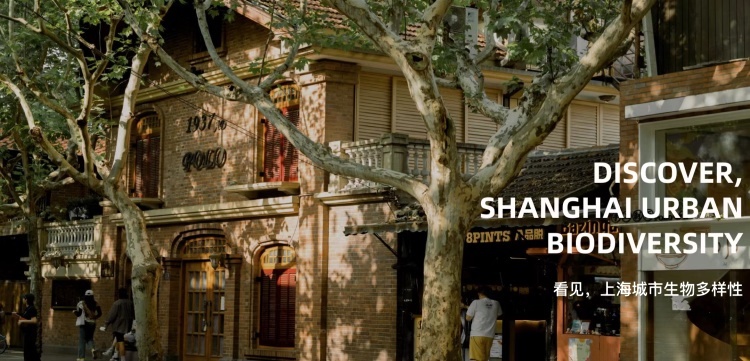
Event: Research & Workshop Series
Focus: Urban Resilience & Embodied Sensing
Supported by: Sense Gallery / 798 Art Zone, Yunhe Studio, Kerry Properties and Ecology and Cultures Lab, Tongji University Shanghai,
Concept: Timothy Nouzak
Photo/Documentation: Yunhe
Supported by: Mobility Grant Erarmus Exchange, European Education and Culture Executive Agency (EACEA) and Tongji University Shanghai
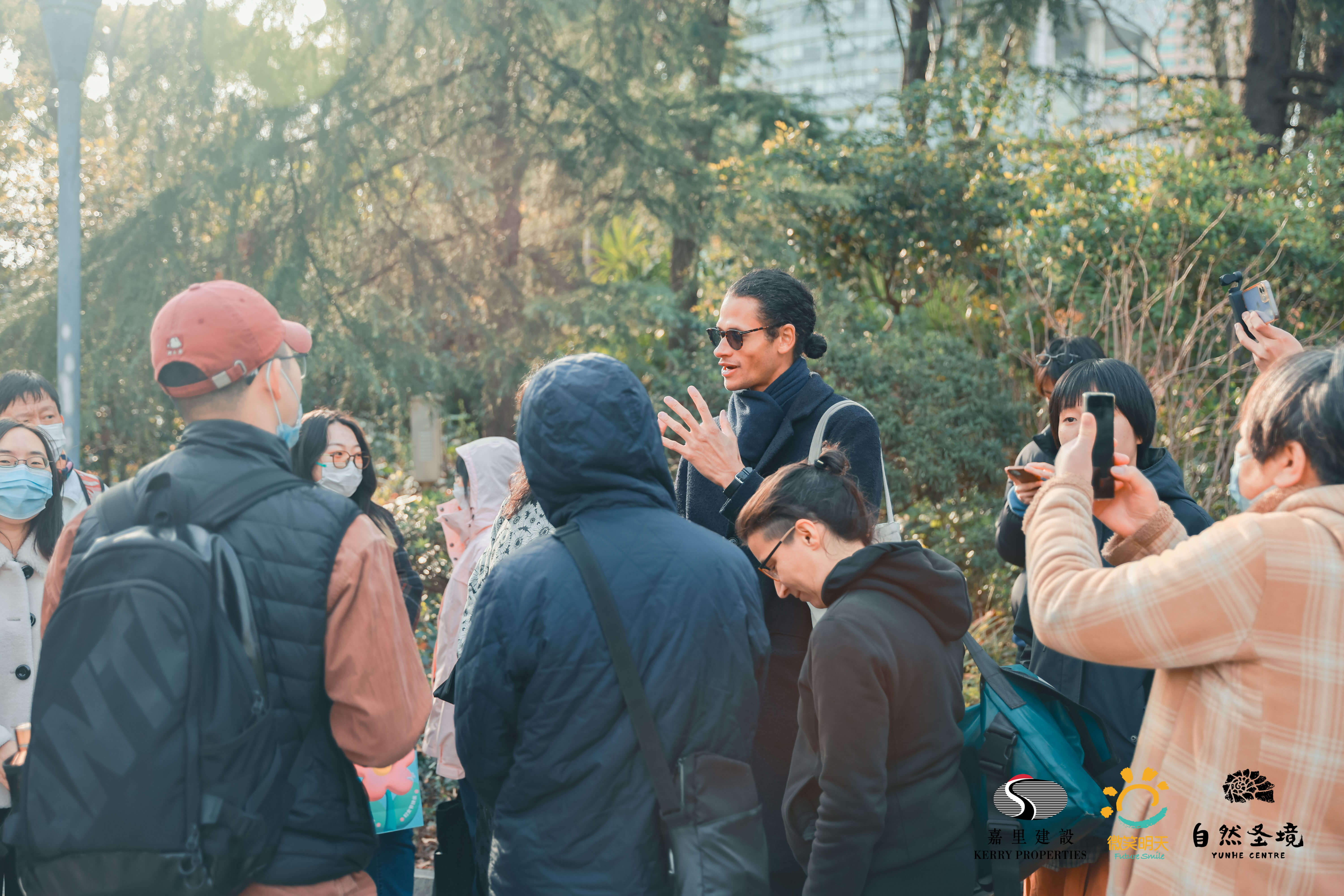



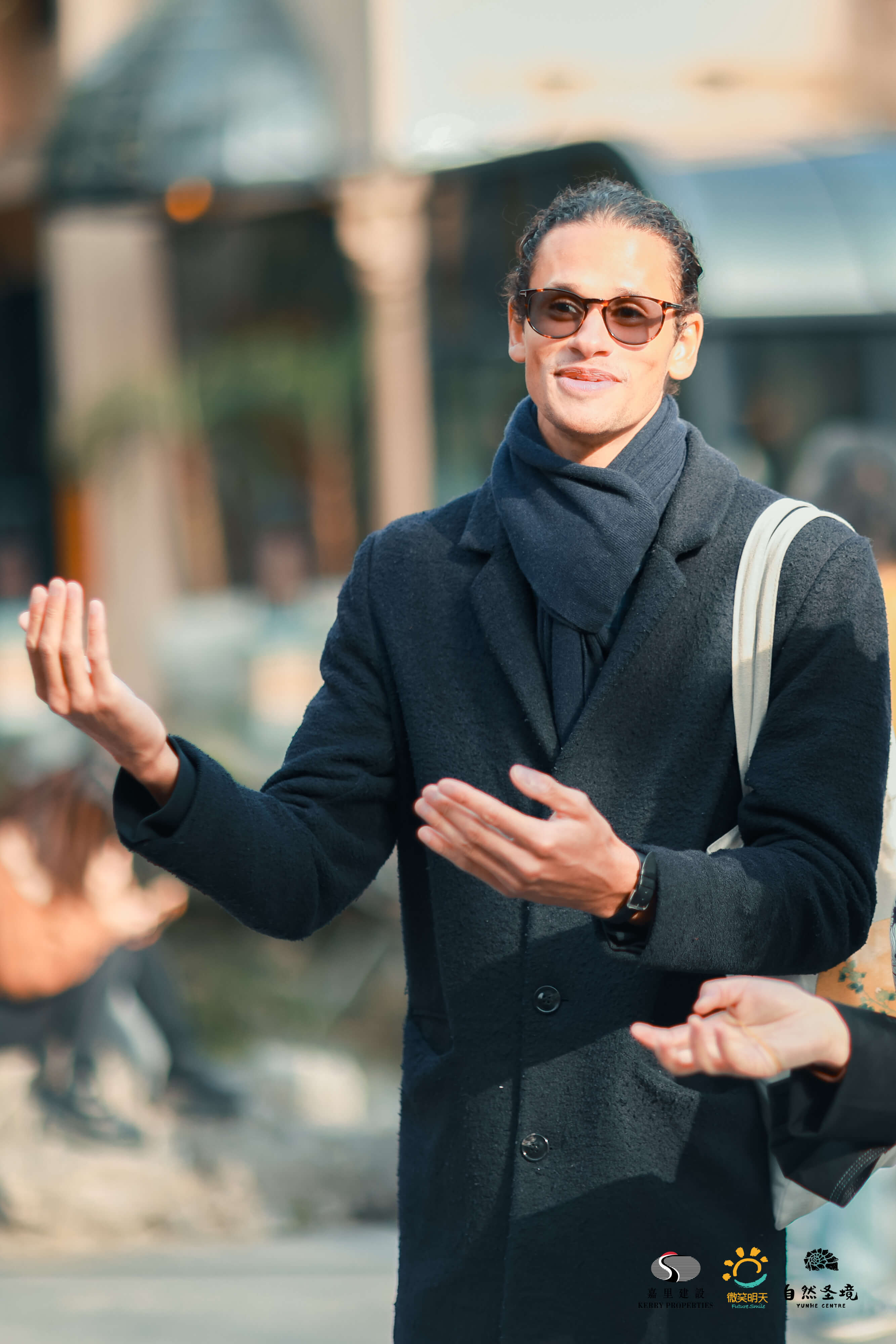


Throughout the different settings, theories of situated and embodied cognition helped to foster relational processes of transformation. Situated cognition, in particular, suggests that knowledge is inseparable from doing within social, cultural, and physical contexts, emphasizing experience-based learning. During the research stay, “Urban Ecology: Exploring Grassroots Resilience through Citizen-led Sensing Practices”, this shift toward embodied and performative approaches deepened the understanding of how urban resilience is formed when citizens engage collectively with urban greening and land-use change.
In the workshop, a local working group engaged in “embodied mapping”—analysing their environment not through visual plans, but through collective listening and sensing.
The workshop invited participants to treat the city as a living system. Instead of discussing urban planning in abstract terms, the group visited micro-gardens and various small-scale green zones. They used simple performative scores to detect the “invisible” social contracts that keep these spaces alive: Who takes care of this corner? How do neighbours negotiate boundaries without fences?
The research exchange with the working group began with an intimate, dialogical process, spending time together to understand experiences and resources. This approach supported subsequent steps, in which the group analysed and addressed these experiences through active participation, using social design methods grounded in listening and sensing practices. The focus was on early phases of group formation, where uncertainty and the willingness to reinvent remained high. The working group is a practical learning-journey initiative undertaken by locals to develop meaningful ventures, services, and ideas that combine greening resources to create impact in their context. They remain open to further modulation and dialogue toward a sustainable and resilient urban ecosystem.
Throughout the residency, the project applied the concept of situated cognition—the idea that knowledge about a city is inseparable from the physical act of living in it. By shifting the focus from top-down design to bottom-up sensing, the workshops encouraged participants to treat their embodied experience as valid knowledge. This approach suggested that “resilience” is not only a structural quality of buildings, but also a social quality: how people connect, adapt, and care for their environment together.
In the workshop, a local working group engaged in “embodied mapping”—analysing their environment not through visual plans, but through collective listening and sensing.
The workshop invited participants to treat the city as a living system. Instead of discussing urban planning in abstract terms, the group visited micro-gardens and various small-scale green zones. They used simple performative scores to detect the “invisible” social contracts that keep these spaces alive: Who takes care of this corner? How do neighbours negotiate boundaries without fences?
The research exchange with the working group began with an intimate, dialogical process, spending time together to understand experiences and resources. This approach supported subsequent steps, in which the group analysed and addressed these experiences through active participation, using social design methods grounded in listening and sensing practices. The focus was on early phases of group formation, where uncertainty and the willingness to reinvent remained high. The working group is a practical learning-journey initiative undertaken by locals to develop meaningful ventures, services, and ideas that combine greening resources to create impact in their context. They remain open to further modulation and dialogue toward a sustainable and resilient urban ecosystem.
Throughout the residency, the project applied the concept of situated cognition—the idea that knowledge about a city is inseparable from the physical act of living in it. By shifting the focus from top-down design to bottom-up sensing, the workshops encouraged participants to treat their embodied experience as valid knowledge. This approach suggested that “resilience” is not only a structural quality of buildings, but also a social quality: how people connect, adapt, and care for their environment together.


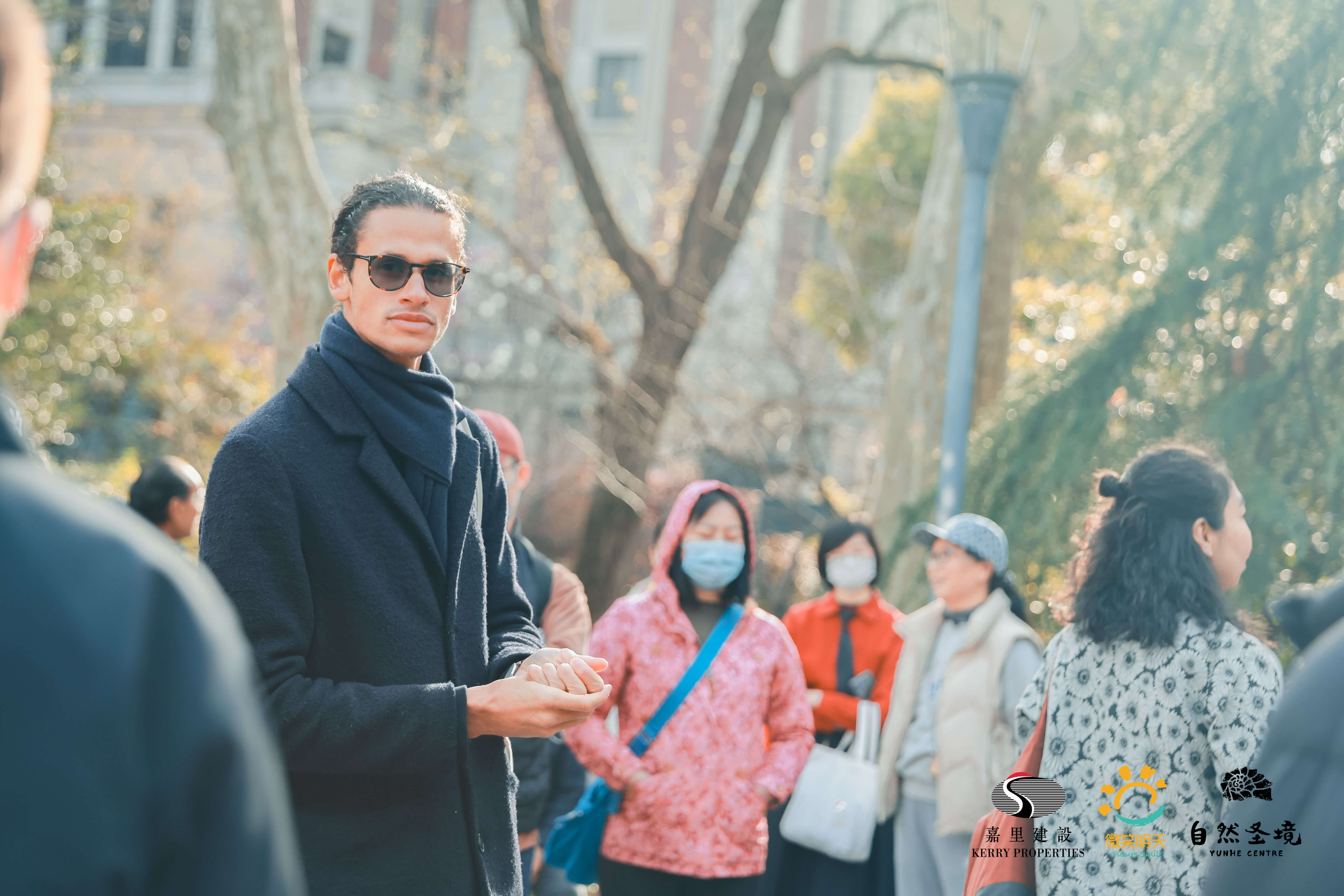
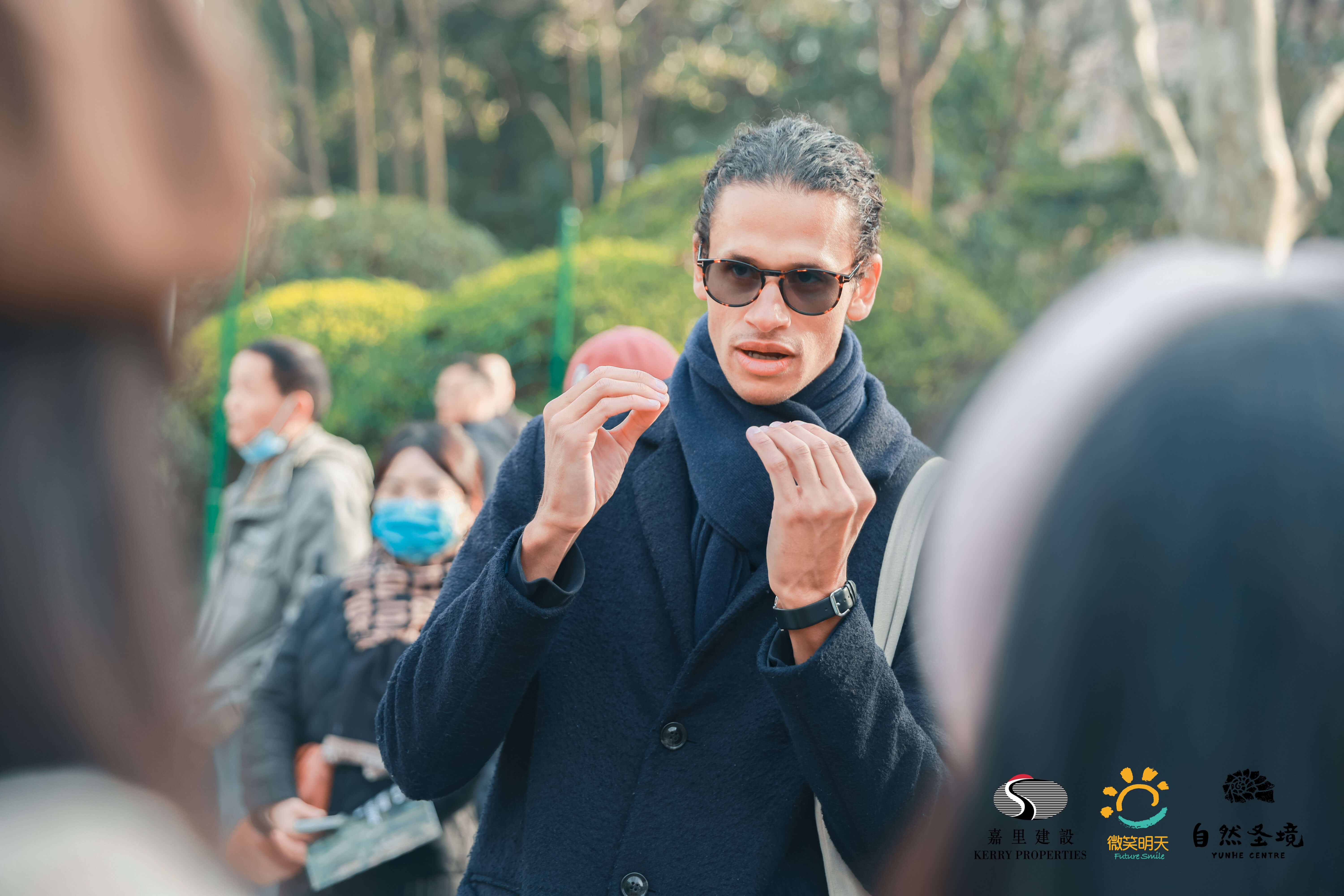

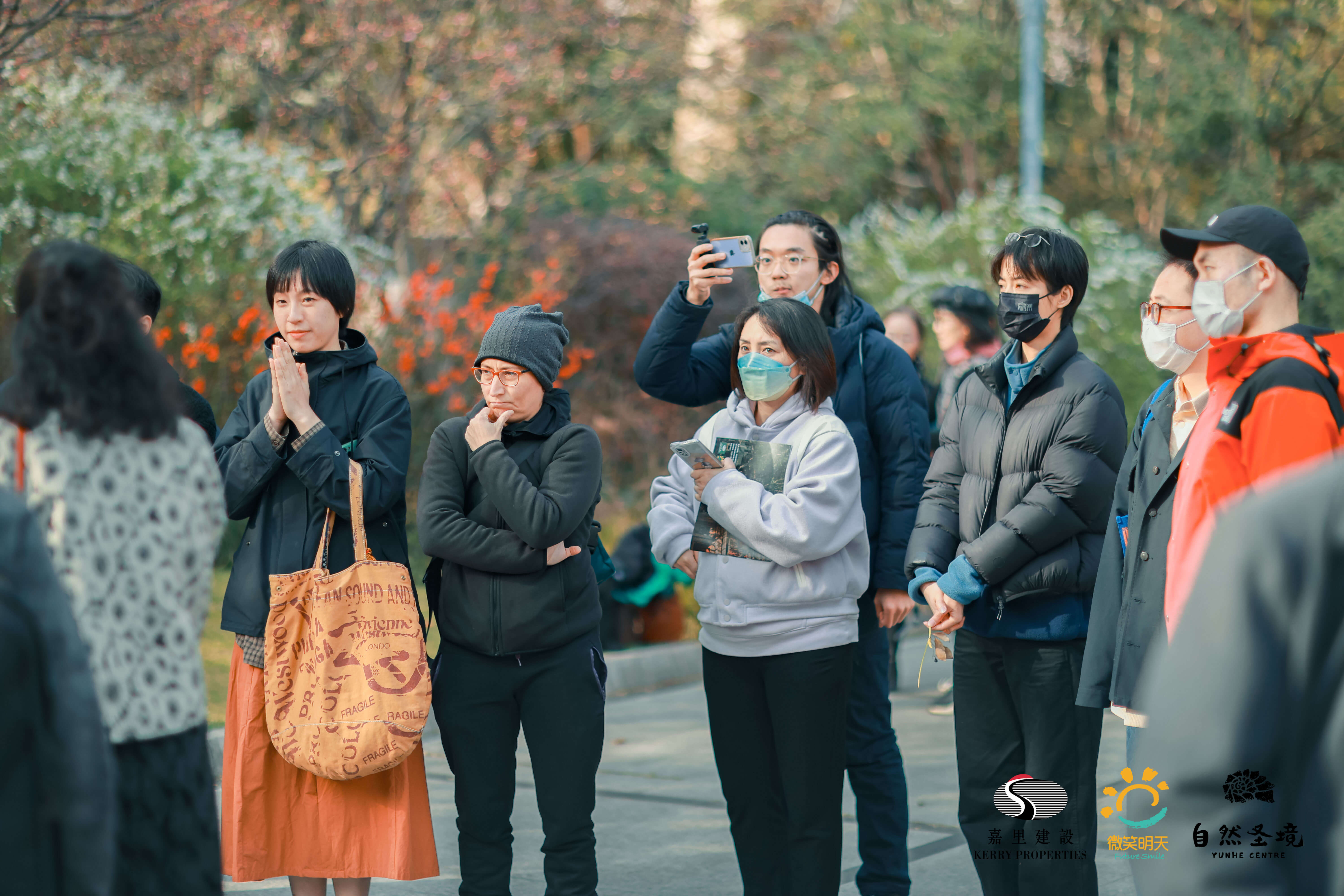


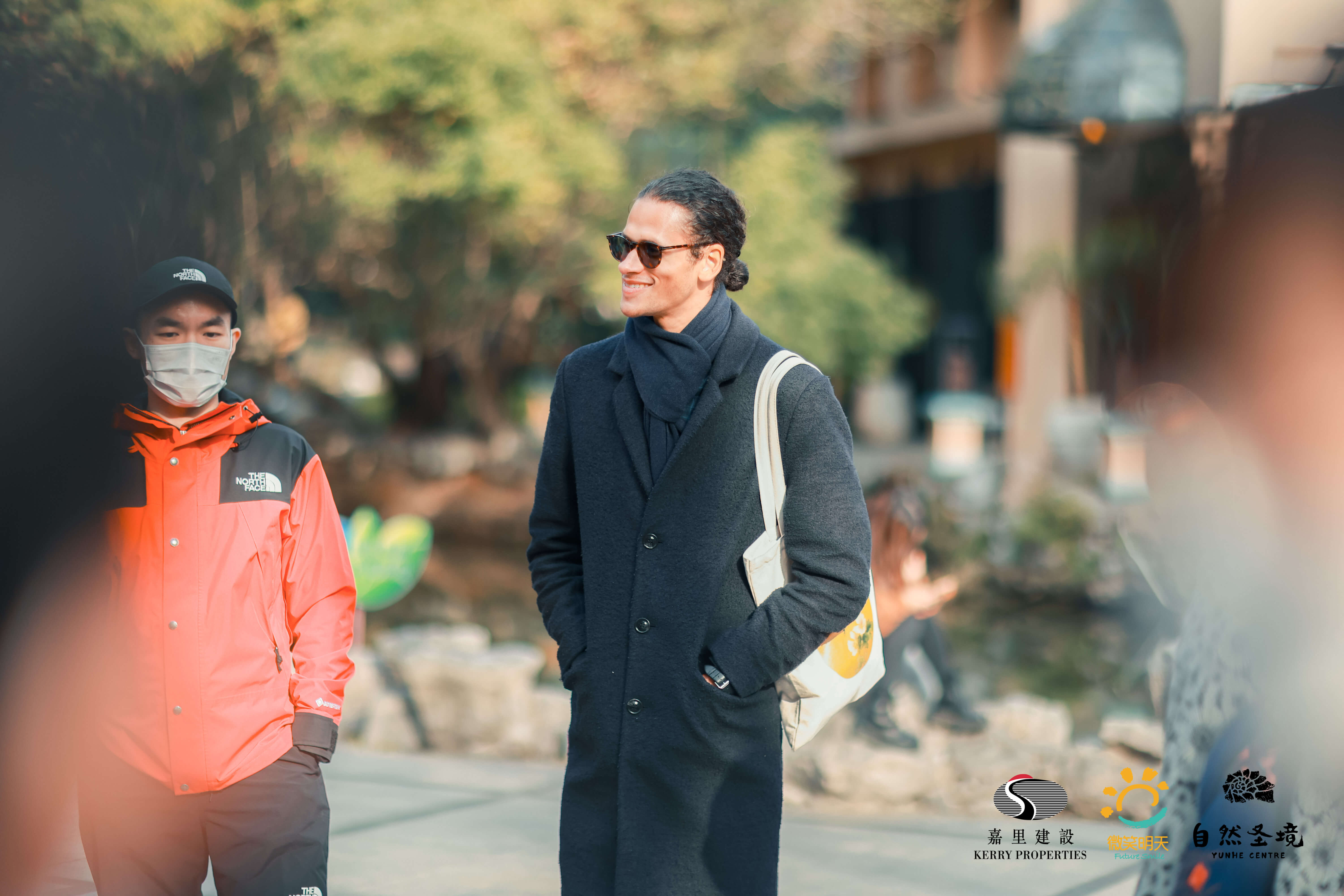
Special thanks to


© photo documentation by Yunhe